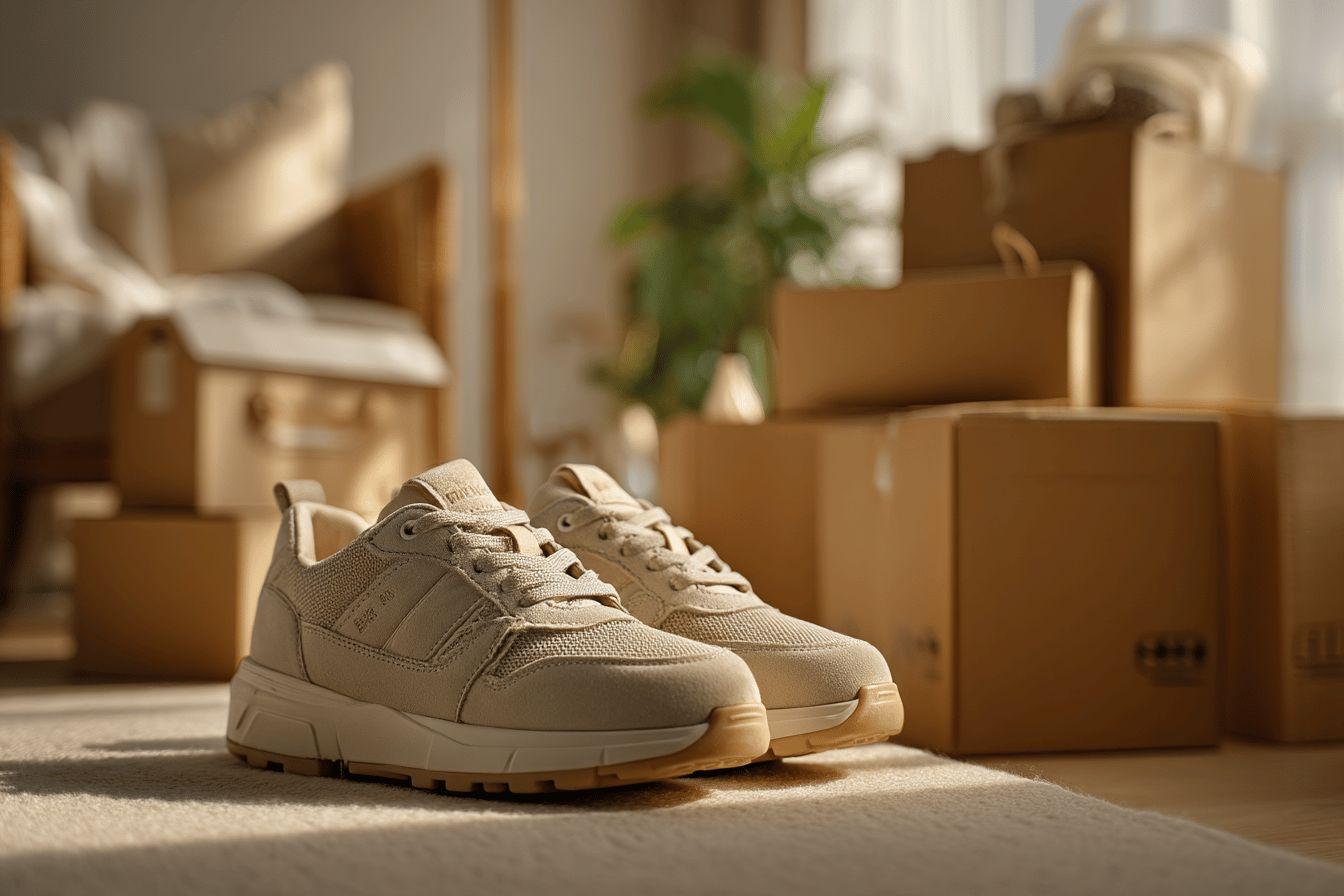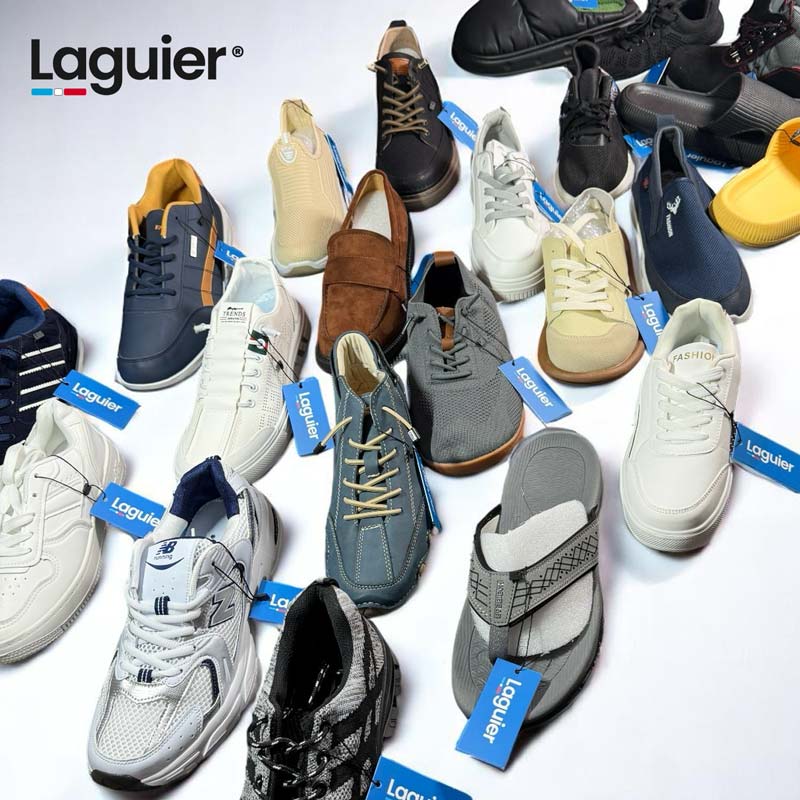Article at a glance
Wide feet require special attention to avoid discomfort and pain when choosing shoes.
- Wide feet can be identified by signs such as lateral wear and red marks on the sides of the shoes.
- Choose soft materials such as leather or suede that adapt to your shape.
- Choose shoes with a round or square toe and adjustment systems such as laces or straps.
- Specialized brands such as New Balance, Clarks, or Mephisto offer suitable models in different widths.
- For cases complex, custom-made orthopedic solutions are available.
Having wide feet can often make shoe shopping a real challenge. Between discomfort, pain, and difficulty finding suitable models, many people resign themselves to wearing unsuitable shoes. However, solutions exist to comfortably fit all types of foot shapes.
How to Identify If You Have Wide Feet
Before looking for shoes suitable for wide feet, it's essential to determine whether you truly fall into this category. A wide foot is generally characterized by a wider-than-average forefoot, particularly at the metatarsals.
Several signs can help you identify this morphological characteristic:
- Traces of rubbing or wear on the outer sides of your shoes
- Sensations of squeezing or lateral compression
- Appearance of corns or calluses on the sides of the foot
- Difficulty putting on shoes of your usual size
- Red marks on the sides of the feet after wearing shoes
Foot width can also be influenced by certain anatomical characteristics such as the Egyptian foot, which has a specific profile requiring adaptations in the choice of footwear.
To obtain an accurate measurement, place your foot on a piece of paper and trace its outline. Then measure the widest part of this footprint. If this measurement exceeds 10 cm for a woman or 11 cm for a man (for an average shoe size), you probably have wide feet.

The Essential Criteria for Choosing the Right Shoes
When you have wide feet, certain criteria become crucial when choosing shoes. The first element to consider is, of course, width. Many brands now offer models in different widths, generally identified by letters (D, E, EE, EEE).
Material is also a determining factor. Choose soft and stretchy materials such as supple leather, suede, or certain technical textiles that will adapt more easily to your shape. Avoid stiff synthetic materials that risk compressing your feet.
The space at the tip, called the toe box, should provide enough volume for your toes to spread naturally. Round or square toe models are generally more suitable than pointed toe models.
The closure system also plays a major role: laces, adjustable straps, or buckles allow for a personalized fit to the size of the foot, unlike models without an adjustment system.
| Criteria | Recommendation for wide feet | Avoid |
|---|---|---|
| Shape | Round, square, or wide toe | Pointed, narrow toe |
| Materials | Soft leather, suede, stretch mesh | Rigid synthetic materials |
| Closure | Laces, straps Adjustable | No adjustment possible |
| Sole | Wide, with arch support | Narrow, without support |
The Best Types of Shoes for Wide Feet
Certain shoe styles are particularly suitable for people with wider-than-average feet. Sneakers and athletic shoes often offer a more generous construction and stretchy materials. Look for brands that specifically offer variable widths in their ranges.
Soft leather loafers are also a great option, as they mold to the shape of the foot over time. For a more formal look, opt for derbies rather than oxfords, as their open construction offers more flexibility.
Sandals with adjustable straps are an ideal solution for the summer season. They allow for precise adjustment of support without compressing sensitive areas of the foot.
For those who have to walk for long periods in urban areas, some specialized brands design models that combine style and comfort, with widths adapted to various body shapes.
Specialized Brands and Custom Solutions
Several brands specialize in shoes for wide feet or offer dedicated ranges. In the sports segment, New Balance and Brooks offer different widths for each size. Clarks, Ecco, and Mephisto are known for their comfortable styles for wide feet, both for men and women.
In the more elegant segment, brands like Allen Edmonds for men and Naturalizer for women offer entire collections in various widths.
For particularly complex cases, custom orthopedic solutions can be an alternative. Fully customized shoes can be made after a podiatrist's precise analysis of your foot morphology.
Stretching techniques can also be used to adapt standard shoes. Special shoe trees or the intervention of a cobbler can slightly widen certain models for greater comfort.
The important thing is to never sacrifice your comfort to follow trends. With the right knowledge and by targeting the right brands, it is entirely possible to combine style and well-being for your feet, whatever their shape.





Leave a comment
This site is protected by hCaptcha and the hCaptcha Privacy Policy and Terms of Service apply.